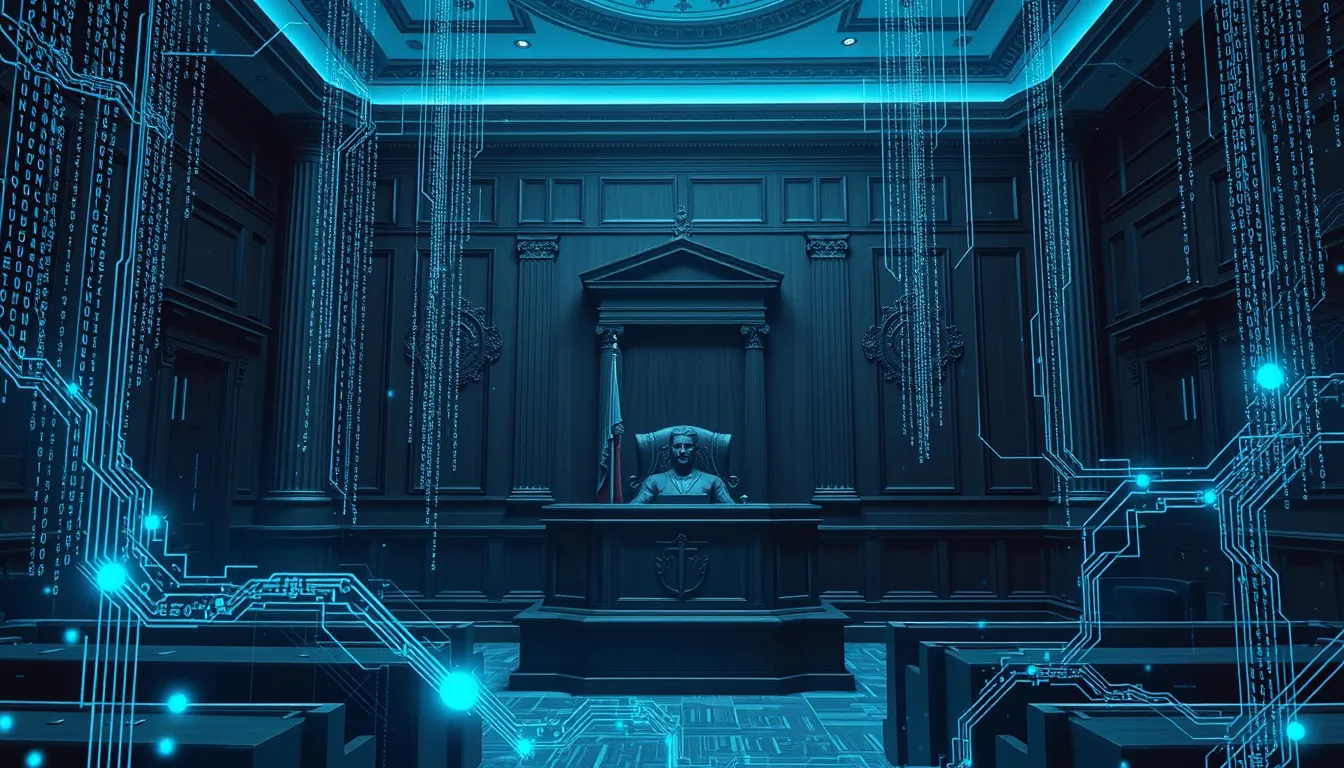Now Reading: Reddit Lawsuit and Anthropic Lawsuit: AI Data Scraping Exposed
-
01
Reddit Lawsuit and Anthropic Lawsuit: AI Data Scraping Exposed
Reddit Lawsuit and Anthropic Lawsuit: AI Data Scraping Exposed

Reddit Lawsuit and Anthropic Lawsuit: AI Data Scraping Exposed
In today’s digital era, the unfolding legal battle between Reddit and Anthropic has grabbed headlines worldwide. This case, centered on allegations of unauthorized data scraping, encapsulates not only a discord over data usage but also a broader debate over intellectual property rights and user privacy. In this comprehensive analysis, we break down the key elements of the lawsuits, explore their implications on the digital age legal landscape, and discuss how ethical data practices must evolve with technological innovation. For more background, visit the official Reddit page and learn about Anthropic.
Overview of the Digital Legal Battle
The case began when Reddit initiated legal proceedings against Anthropic, accusing the AI research firm of unauthorized data scraping. The allegations point to the harvesting of vast amounts of user data from Reddit, allegedly violating both the platform’s terms of service and established intellectual property boundaries. Such practices raise critical questions about the ethics of data harvesting in the digital age and emphasize the need to safeguard user privacy.
Key points in this legal battle include:
- Alleged misuse of publicly available data
- Potential infringement of intellectual property rights
- Serious concerns regarding user consent and privacy
- The setting of legal precedents in data scraping cases
Details of the Lawsuit and Legal Implications
The lawsuit is not merely about data harvesting; it is an intricate legal tug-of-war that challenges how public digital content is utilized by technology companies. According to legal documents, Reddit asserts that Anthropic breached intellectual property rights by using scraped content without permission. The case further stresses the importance of clearly defined legal frameworks in scenarios where data is openly available but still subject to proprietary claims.
Unauthorized Data Scraping in AI Research
In an era where data is a coveted commodity, the issue of unauthorized data scraping in AI research has taken center stage. This lawsuit draws attention to the fine balance between harnessing available data for technological advancements and respecting the legal rights that online communities inherently possess. The allegations suggest that Anthropic, in seeking to improve its machine learning models, engaged in practices that could set a dangerous precedent if left unchecked. As discussions evolve, experts emphasize the need for transparency and ethical data use in AI research.
Implications on Intellectual Property Rights & User Privacy
A cornerstone of this legal battle revolves around the protection of intellectual property and the inviolability of user privacy. In the digital landscape, user-generated content represents not only valuable information but also the collective voice of a community. The repercussions of such legal disputes extend far beyond immediate legal consequences:
- Strengthening the enforcement of intellectual property rights
- Encouraging platforms to clarify data usage policies
- Enhancing user privacy protections to maintain trust
These aspects prompt a reevaluation of how companies collect, process, and utilize data. The current case serves as a wake-up call, urging both tech giants and startups to innovate responsibly while adhering to established legal principles.
Ethical Considerations in Data Harvesting
Ethical data use in AI models is a multifaceted challenge. Companies must navigate a complex labyrinth of legal obligations, user expectations, and technological ambitions. By scrutinizing cases like the reddit lawsuit and anthropic lawsuit, stakeholders can better understand the importance of prioritizing transparency and fairness in their data practices. The long-tail keyword, unauthorized data scraping in AI research, aligns perfectly with this discussion as it highlights the necessity for explicit consent and more robust data protection measures in the digital age.
Future Impact on AI Research and Data Ethics
The outcomes of these lawsuits are anticipated to have far-reaching repercussions in the technology sector. As AI models continue to evolve, there is an increasing need to establish and enforce ethical guidelines regarding data acquisition. The current legal proceedings are likely to influence policy decisions and could help shape future regulatory frameworks. Topics for future discussion and legislative review include:
- Defining clear standards for data harvesting.
- Balancing innovation in AI with the protection of user rights.
- Implementing robust safeguards for digital content creators.
Such steps will not only protect the integrity of digital communities but also foster an environment where AI research can flourish without compromising ethical standards.
Conclusion – Balancing Innovation with Legal Boundaries
The reddit lawsuit and anthropic lawsuit have emerged as pivotal cases that encapsulate the ongoing tensions between technological innovation and legal responsibility. As digital platforms become increasingly intertwined with AI research and development, robust legal guidelines are essential to protect the rights of creators and users alike. The implications of this legal dispute extend well beyond the involved parties, signaling a critical moment for the entire tech industry.
In conclusion, while innovation drives progress, it is paramount that ethical data harvesting practices and respect for intellectual property and user privacy remain at the forefront of discussions. As this legal battle progresses, industry experts, policymakers, and tech enthusiasts alike will be closely monitoring its outcomes, hoping for a balanced resolution that honors both progress and protection.
By understanding these layers of the legal and ethical implications, stakeholders can better navigate the complex dynamics of data usage and AI model training. Ultimately, this case reminds us that in the rapidly evolving tech landscape, accountability and transparency are the keys to sustainable innovation.

























